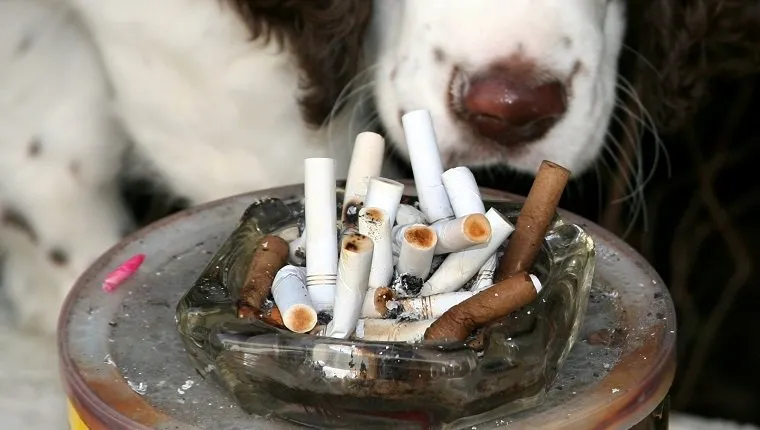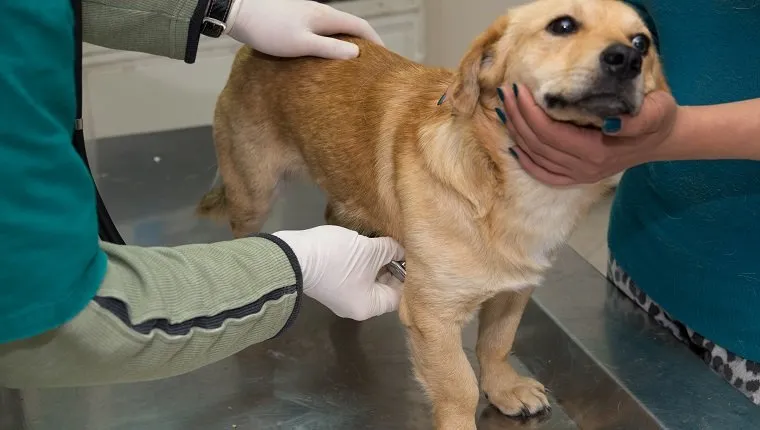Pneumonia in dogs is a condition that affects the respiratory system, including the lungs and airways that allow dogs to breathe. This results in several symptoms that usually disappear with proper treatment, though if it’s not treated, it can lead to serious complications in dogs, including hypoxemia and sepsis.
Bacterial pneumonia refers to inflammation in the lungs caused by a bacterial infection, while aspiration pneumonia refers to inflammation caused by inhaling foreign substances, including vomit and regurgitated food or fluid. Pneumonia also has many other possible causes.
If you see the signs in your dog, then you must seek veterinary treatment. Here’s what you should know about the symptoms, causes, and treatments for pneumonia in dogs.
Symptoms Of Pneumonia In Dogs

Symptoms of pneumonia in dogs will generally appear in the respiratory system, including the lungs, throat, trachea, windpipe, nose, sinuses, and smaller airways known as bronchi and bronchioles.
Here are a few symptoms you might expect to see with bacterial pneumonia:
- Coughing
- High fever
- Difficulty breathing
- Lethargy
- Difficulty exercising
- Runny nose
- Nasal whistling or wheezing
- Irregular breathing
- Dehydration
- Weight loss or anorexia
Aspiration pneumonia has many of the same symptoms, but might also be accompanied by difficulty swallowing, bluish skin, altered mood, and frequent regurgitation.
Causes Of Pneumonia In Dogs

Most cases of pneumonia in dogs are bacterial. The most common bacteria that cause the illness are Bordetella bronchiseptica, E. coli, Klebsiella pneumoniae, Mycoplasma, Pasteurella multocida, Pseudomonas aeruginosa, and Streptococcus zooepidemicus.
Some of these bacteria, like Bordatella bronchiseptica, are contagious, especially to dogs with compromised immune systems. Most of them, however, are not highly contagious.
Aspiration pneumonia can be caused by abnormalities in the pharynx, as well as neuromuscular disorders that affect the ability of muscles in the respiratory system to function properly. Enlargement of the lower esophagus due to regurgitation can also lead to aspiration pneumonia.
Acid reflux is a known cause of frequent regurgitation. Rarely, an incorrectly placed feeding tube can cause aspiration pneumonia, as well.
Other causes of pneumonia include injury to the respiratory system, irritants, or other sources of infection. Irritants include inhaled toxins like secondhand smoke or environmental pollutants. These produce the inflammatory response associated with the condition.
Metabolic disorders, viral infections, tumors, cleft palate, and conditions that cause difficulty swallowing or regurgitation can all lead to pneumonia in dogs.
Treatments For Pneumonia In Dogs

Treatment for pneumonia in dogs depends on the cause. For instance, veterinarians will likely treat bacterial infections with antibiotics. They may also prescribe medications to prevent new infections from occurring.
Usually the antibiotic regimen will last three to four weeks and may continue for a while after the infection disappears.
In the case of aspiration pneumonia, the vet may attempt to remove the foreign material from the lungs that’s causing the problem. They can do this through suction or other means.
Vets may give oxygen to dogs in cases of severe problems, as well as intravenous fluids to dogs who are suffering from dehydration. Some dogs may also benefit from a humidifier to keep the air moist as they recover with plenty of bed rest.
Other cases of pneumonia are treated as needed based on cause. In some cases, vets may need to remove damaged lung tissue surgically.
Infections from viruses, fungi, or parasites will be treated with different medication. Vets should treat underlying causes like acid reflux, as well, to prevent further inflammation.
Most dogs who receive treatment make a full recovery; however, exposure to pneumonia often makes it likely that the condition will reoccur. This is especially true if the vet can’t determine underlying cause of the initial inflammation. Make sure you follow treatment procedures from your vet thoroughly to reduce this risk.
Has your dog ever had pneumonia? How did your vet treat it? Let us know in the comments below!









